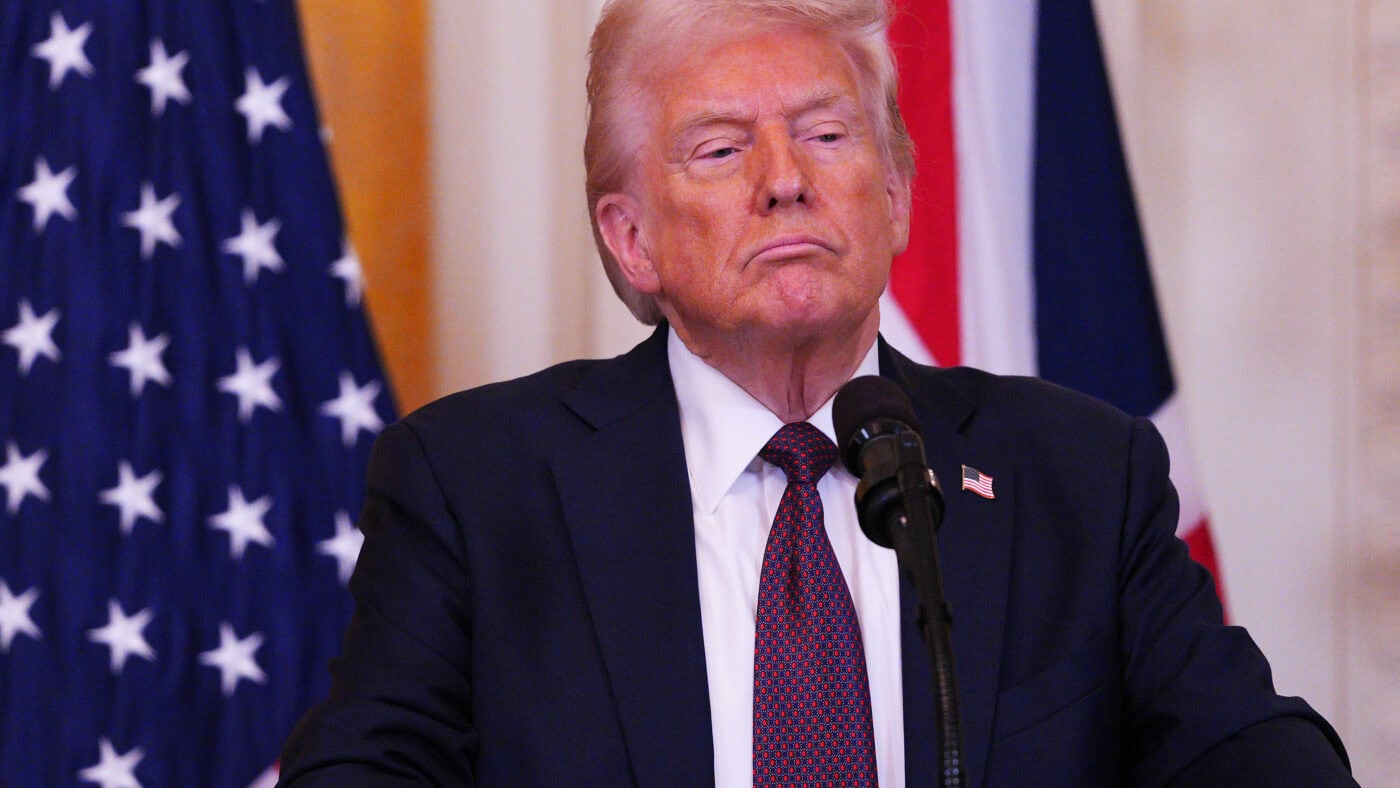Since the ‘peace process’ of the 1990s, the St Patrick’s Day event at the White House has become a much-anticipated junket for politicians north and south of the Irish border. This annual celebration of paddywhackery brings traditional enemies together in pursuit of US patronage and cash, while the backdrop of shamrocks and Guinness appeals to the Irish-American lobby and its clichéd view of life on the ‘auld sod’.
This year, that rose-tinted image of Ireland has never seemed more out of fashion on the other side of the Atlantic. Some of the supplicants on March 17 are likely to find their welcome less congenial than usual, while others have already said they will not attend the party, whether they are invited or not.
Donald Trump’s presidential campaign specifically targeted American companies that route profits through tax havens like the Republic of Ireland, rather than contributing to their own country’s revenues. The Irish economic model is dependent on ‘onshoring’ US multinationals by offering them low rates of corporate tax. The economist, Paul Krugman, described this method of generating income as ‘leprechaun economics’, while the Irish journalist Kevin Myers recently dubbed his homeland the ‘most parasitic’ country in the EU. The ‘Father Ted economy’, reliant on money resting in the Republic’s account, is now in Trump’s crosshairs.
The President has also accused Nato states, never mind neutral countries like Ireland, of sheltering under American protection and refusing to pay for their own defence. The Republic, while boasting about its comparative wealth, spends 0.2% of GDP on security, relying mainly on Britain and the US to keep it safe. Its government combines this neutrality with the habit of issuing high-handed lectures on foreign policy to more responsible nations, and expressing unremitting hostility, verging on antisemitism, towards Israel.
The new administration in Washington is unlikely to overlook Dublin’s unique blend of hypocrisy, sanctimony and woke posturing. The Vice President, JD Vance, outraged many Europeans recently, when he attacked their failures to protect free speech at the security conference in Munich. Previously, he described the Republic’s plans to introduce sweeping ‘hate laws’ as ‘authoritarian’. ‘If this were happening in Russia or China,’ Vance wrote, ‘we would call it totalitarian and threaten economic sanctions.’
Against this backdrop, the President has barely started inviting the usual cast of Irish politicians to St Patrick’s Day at the White House. That did not stop Sinn Fein announcing last week that it would boycott the event. The party claimed that it was taking ‘a stand against injustice’ in Palestine, by pre-emptively snubbing Trump.
This was the kind of moral high ground that only inveterate terrorist sympathisers can find. Within hours, Sinn Fein’s leaders were issuing gushing tributes to Brendan ‘Bik’ McFarlane, the latest IRA murderer to die with Northern Ireland still under the King’s Crown and Union Flag. Among his other crimes, McFarlane bombed a pub full of civilians on the Shankill Road, killing five people and injuring more than fifty. Senior members of the Republic’s main opposition party, also the largest at Stormont, attended his lavish republican funeral on Tuesday.
Some of Sinn Fein’s fellow travellers, alongside so-called Irish ‘human rights defenders’, also mourned the Islamist terrorist Hassan Nasrallah when he was commemorated in Lebanon last week. A member of the Provo-friendly rap band Kneecap, celebrated by many in the Irish establishment as a successful cultural export, posed on X with a book of the Hezbollah leader’s statements. The Times of Israel observed that, alongside Palestinian flags, there was ‘one eccentric outlier’, the Republic of Ireland’s tricolour, in Beirut. ‘There weren’t even any flags,’ a columnist wrote, belonging to pariah states like Cuba and Venezuela, but Ireland is now viewed by the rest of the world as a ‘poster boy’ for all things pungently anti-Israel.
The most aggressive anti-Israel posturing may come from Sinn Fein and other left-wing agitators, but Israel already considers the Irish government the least even-handed in Europe when it comes to Gaza and Palestine. The Israeli embassy in Dublin closed last year, in protest against Ireland’s ‘extreme’ policies on the Middle East. At the Munich conference, the Republic’s Deputy Prime Minister, Simon Harris, posed alongside the ‘prime minister of Palestine’, which one journalist on X suggested was like being ‘papped with the Lord Mayor of Narnia’.
In Northern Ireland, Sinn Fein is not the only party to reject an invitation from Trump that it has not yet received. The nationalist SDLP was first out of the blocks, while the preening progressives in Alliance followed suit this week. No doubt they will be missed at the White House. The province’s unionist parties might have more scope to explore JD Vance’s Ulster-Scots roots, which he is said to embrace enthusiastically, or Trump’s admiration for Andrew Jackson, the seventh US President, whose family came from Carrickfergus. They badly need an international spotlight on the internal border that has cut them off from the rest of the UK.
In contrast, for nationalists, who usually revel in Irish kitsch so enthusiastically, St Patrick’s Day in the US could this year be an occasion best forgotten. In a rapidly changing world, the exaggerated sense of victimhood, empathy for terrorists and unbounded hypocrisy that too many of them exude seems to have run out of road.
Click here to subscribe to our daily briefing – the best pieces from CapX and across the web.
CapX depends on the generosity of its readers. If you value what we do, please consider making a donation.


